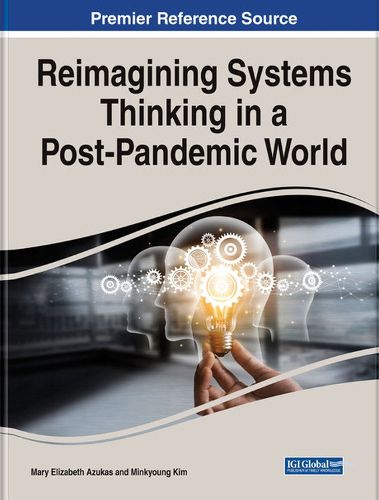Readings Newsletter
Become a Readings Member to make your shopping experience even easier.
Sign in or sign up for free!
You’re not far away from qualifying for FREE standard shipping within Australia
You’ve qualified for FREE standard shipping within Australia
The cart is loading…






This title is printed to order. This book may have been self-published. If so, we cannot guarantee the quality of the content. In the main most books will have gone through the editing process however some may not. We therefore suggest that you be aware of this before ordering this book. If in doubt check either the author or publisher’s details as we are unable to accept any returns unless they are faulty. Please contact us if you have any questions.
The COVID-19 pandemic caused the largest systemic disruption in history. The pandemic was a complex phenomenon that impacted economic, political, and education systems. The pandemic had widespread business impacts, having forced many businesses to close, and the world is still impacted by the effects of supply chain disruptions. The pandemic also impacted political systems with disputes over mask mandates, lockdowns, and vaccine distribution. The COVID-19 pandemic further caused the most extensive education system disruption in history. The pandemic has highlighted the world's complex interdependent structures, and it will require a multidisciplinary systems thinking approach for post-pandemic recovery and future pandemic prevention.
Reimagining Systems Thinking in a Post-Pandemic World examines the role of systems thinking in a post-pandemic world. It identifies effective models of systems thinking and destems design and generates continuous knowledge building on systems thinking by addressing a multitude of industries and service communities. This book provides value in understanding the complexities of an interconnected world and in the exploration of effective approaches to systems thinking and design. Covering topics such as blended learning, local governments, and systems thinking, this premier reference source is an excellent resource for practitioners, policymakers, healthcare providers, business leaders and managers, educators of both K-12 and higher education, pre-service teachers, administrators and faculty, teacher educators, sociologists, librarians, researchers, and academicians.
$9.00 standard shipping within Australia
FREE standard shipping within Australia for orders over $100.00
Express & International shipping calculated at checkout
This title is printed to order. This book may have been self-published. If so, we cannot guarantee the quality of the content. In the main most books will have gone through the editing process however some may not. We therefore suggest that you be aware of this before ordering this book. If in doubt check either the author or publisher’s details as we are unable to accept any returns unless they are faulty. Please contact us if you have any questions.
The COVID-19 pandemic caused the largest systemic disruption in history. The pandemic was a complex phenomenon that impacted economic, political, and education systems. The pandemic had widespread business impacts, having forced many businesses to close, and the world is still impacted by the effects of supply chain disruptions. The pandemic also impacted political systems with disputes over mask mandates, lockdowns, and vaccine distribution. The COVID-19 pandemic further caused the most extensive education system disruption in history. The pandemic has highlighted the world's complex interdependent structures, and it will require a multidisciplinary systems thinking approach for post-pandemic recovery and future pandemic prevention.
Reimagining Systems Thinking in a Post-Pandemic World examines the role of systems thinking in a post-pandemic world. It identifies effective models of systems thinking and destems design and generates continuous knowledge building on systems thinking by addressing a multitude of industries and service communities. This book provides value in understanding the complexities of an interconnected world and in the exploration of effective approaches to systems thinking and design. Covering topics such as blended learning, local governments, and systems thinking, this premier reference source is an excellent resource for practitioners, policymakers, healthcare providers, business leaders and managers, educators of both K-12 and higher education, pre-service teachers, administrators and faculty, teacher educators, sociologists, librarians, researchers, and academicians.